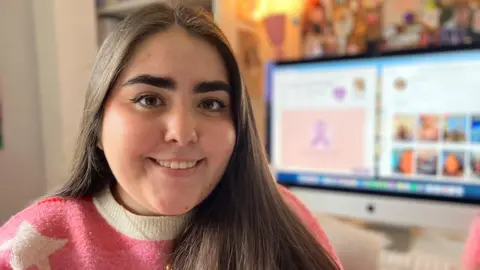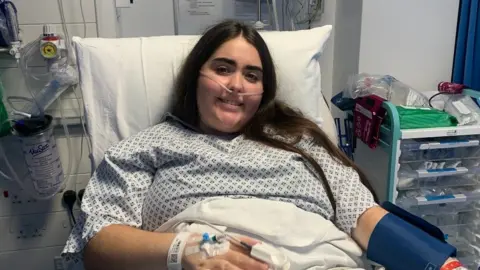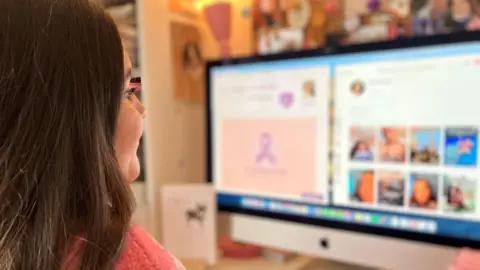Woman wants to break down IBD 'taboos'
 BBC
BBCA woman who kept her Inflammatory Bowel Disease (IBD) symptoms a secret until it almost killed her has urged people to seek medical help if they think something is not right.
Lucy Harman, who lives in Southampton, Hampshire, said she was going to the toilet more than 50 times a day, was in constant pain and was losing her hair before she was hospitalised just a few months after starting university aged 18.
Now 22, she uses social media to raise awareness of IBD and Crohn's disease, and has urged people not to suffer in silence.
"You'd go to the doctors if you've got a broken arm or something like that, so why wouldn't you go to the doctors if you've got a problem with your poo?" she said.
Ms Harman said that when her symptoms began, "there was always something I could blame it on" and embarrassment kept her from telling anyone.
"I didn't tell my partner, I didn't tell my mum," she said.
"No-one really talks about poo, because it's so taboo especially when you’re freshly 18."
Her symptoms worsened until she was "in agony all the time", and had stopped eating altogether.
 Lucy Harman
Lucy HarmanWhen she went home from university for Christmas, she passed out and was rushed to hospital.
"My organs were going into shutdown, so they needed to figure out what was wrong with me really fast," she said.
Normally Crohn's disease - a type of IBD - takes time to diagnose, but for Ms Harman it took just 48 hours.
"It was very sudden," she said.
She was put on steroids, antibiotics and immunosuppressant injections, and now says being diagnosed was the "the best thing that ever happened to me".
"Finding out what was wrong with me gave me the ability to get help," she said.

Now, Ms Harman shares her experiences of the disease with her more than 6,600 followers on TikTok and Instagram, something she says is a "coping mechanism".
"It's a way of putting it out there and just getting out all my emotions," she said.
"I think the main thing I've learned about myself is that I'm far stronger than I realise."
Follow BBC South on Facebook, X (Twitter), or Instagram. Send your story ideas to [email protected] or via WhatsApp on 0808 100 2240.
